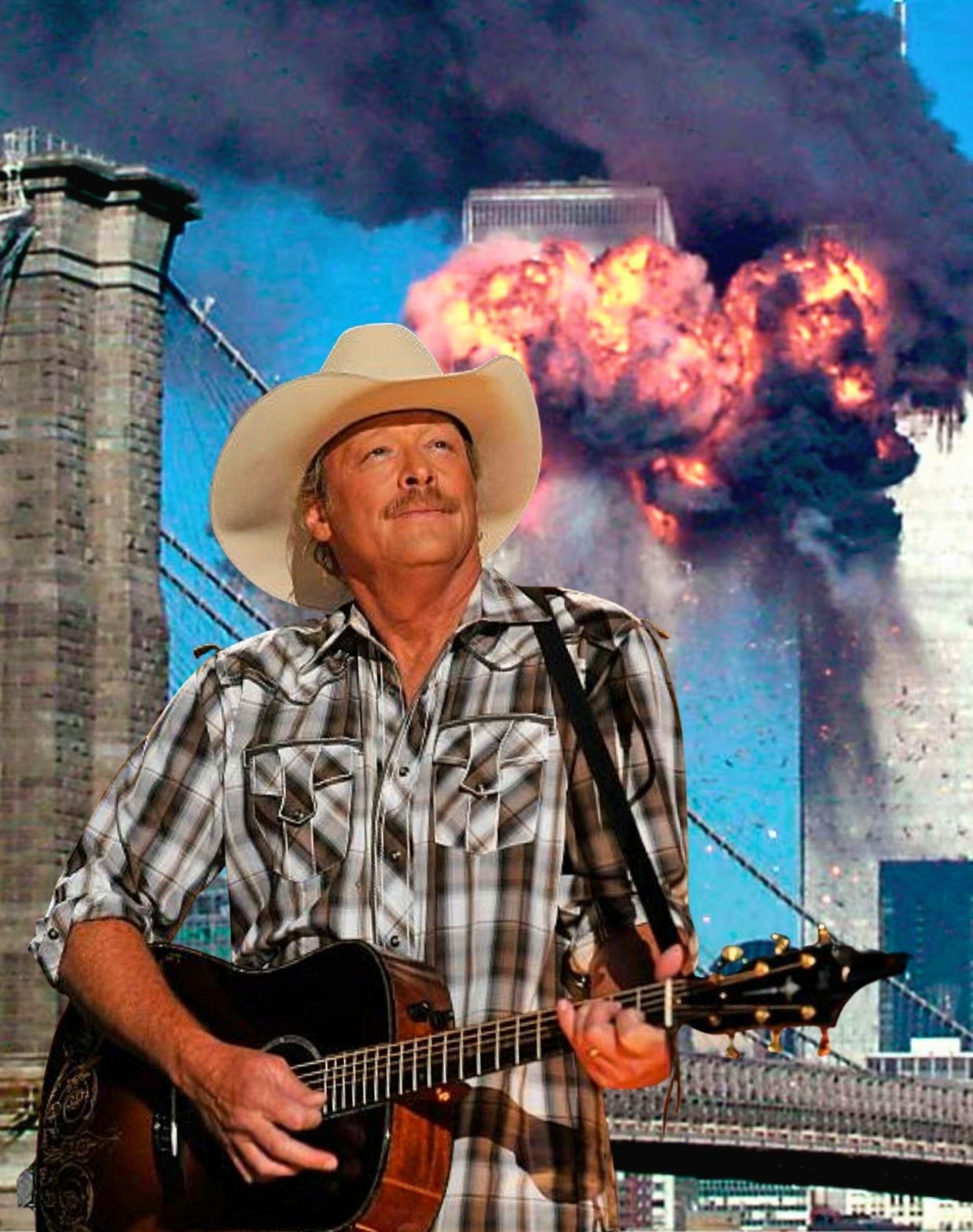
In the haunting days following the devastating September 11th attacks, when America was overwhelmed by catastrophic loss, country music icon Alan Jackson turned to the only solace he knew—writing a song. In a profound moment of prayer and deep reflection, he channeled his overwhelming grief, poignant questions, and shattered heart into a composition forever intertwined with that tragic day: “Where Were You (When the World Stopped Turning)”.
Alan has repeatedly expressed that his intention was never to craft a political anthem or a historical narrative. Instead, he attempted to vocalize the collective feelings shared by countless ordinary Americans: profound sorrow, confusion, steadfast faith, and a desperate yearning for meaning when the foundation of life seemed irreparably shaken.
The lyrics unfolded gently, almost as a whispered plea: “Where were you when the world stopped turning, that September day?” This single evocative line encapsulated the nation’s anguish—not through grand declarations, but through an intimate question that reached the listener’s soul.
He painted vivid images of everyday moments: watching children play innocently, holding loved ones tightly, seeking comfort in Scripture, and, above all, humbly recognizing that sometimes no answers exist—only unwavering faith. The stark simplicity of the words was powerful; they felt less like song lyrics and more like a deeply personal entry from America’s shared diary.
When Alan debuted the song at the CMA Awards in November 2001, a hush fell over the audience. His voice, filled with raw emotion, moved many to tears. By the song’s final chorus, it was unmistakable—it transcended a mere performance; it emerged as a collective, national prayer.
The track quickly transcended commercial success, soaring to #1 on music charts and earning Alan prestigious accolades including Song of the Year and Single of the Year at both the CMA and ACM Awards, along with the Grammy for Best Country Song. But beyond trophies, the song became a soothing balm for a wounded nation.
For firefighters, first responders, widows, children of those lost, and soldiers deployed thereafter, Alan’s poignant ballad was a steady companion. It echoed across memorial gatherings, candlelight vigils, and solemn funerals. Radio stations played it continuously as if it were part of an essential liturgy of remembrance.
Reflecting on the profound impact of his creation, Alan confessed he was taken aback by the outpouring of emotion it stirred:
“I just wrote what was on my heart,”
and
“I never imagined it would touch people the way it did.”
Now, in 2025, this moving anthem still resonates deeply. Each September, as the nation collectively pauses to remember, the song re-emerges. Younger generations, untouched by the direct horror of that morning, discover the track anew and through its haunting melody step into the grief, memory, and hope carried by those who experienced the tragedy firsthand.
The song has, in many respects, outlived its original time and morphed into a timeless ode. It is detached from the politics of 2001 and detached from the subsequent years of conflict. Instead, it reaches the universal human experience of loss, longing, and the endurance of faith amid sorrow.
“Where were you when the world stopped turning?” This poignant question persists—not as a reproach but as a vivid remembrance. Every American who lived through 9/11 has an answer. Some were at work, watching television screens in disbelief. Others were in classrooms, clutching textbooks while teachers wept. Many were thousands of miles away but felt their hearts inexplicably drawn to New York, Washington, and Pennsylvania as if by an invisible thread.
Alan’s song does not impose or demand these stories but kindly offers a sanctuary for them.
Alan Jackson never sought to become the nation’s mournful voice. At heart, he is a modest man from Georgia, a singer of love, family, and everyday moments. Yet on that fateful September morning—and in the heartfelt song that followed—he gave America a sacred space to grieve collectively.
Two and a half decades later, his words gently remind us that healing arises not from politics or power but through unwavering faith, profound love, and the act of remembering.
As the anniversary bells toll and the names of those lost are solemnly read, Alan’s song reverberates across time like a prayer: simple, unrefined, yet eternal.
Long after the dust has settled and the memorial lights fade, one question remains hauntingly vivid:
Where were you when the world stopped turning?